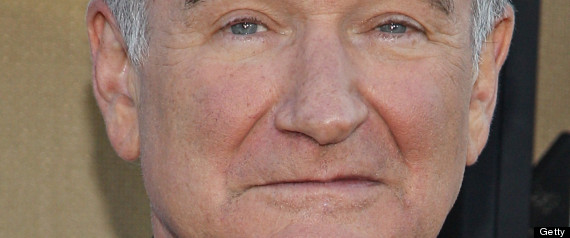 First thing I thought, upon hearing that Robin Williams was gone, was that he’d been making me laugh for as long as I can remember.
First thing I thought, upon hearing that Robin Williams was gone, was that he’d been making me laugh for as long as I can remember.
I realized almost at once that this wasn’t quite true.I was ten or so when Mork first arrived from Ork. But it seemed true—or more accurately, it seemed like it should have been true. Because Robin Williams was so funny, so naturally and organically comical, that it feels like laughter didn’t really properly begin until Robin Williams began to clown for us.
I realized, on the heels of that, that although this was all undeniably true, it was also only part of Robin Williams’s professional story. He was decades into his career, and a huge star, before he showed us his chops as a dramatic actor. With Dead Poets Society, Good Will Hunting, What Dreams May Come and many others, he gave us some inkling of the depth his talent. Hilarious though he was, he was also a multi-layered, accomplished performer, ultimately capable of inhabiting any role.
This inner dialogue of hero-worship took mere seconds, and it all transpired before I learned the “apparent cause” (as it’s being breathlessly called) of Robin Williams’s death. Then the narrative changed.
Similarly, it’s about to change for all of us. It’s already begun, in fact. They who deem themselves the setters of the parameters of our cultural conversation, who decide that Learning Moments abound and who see to it that we’ll damned well learn, aren’t going to want to talk much about the extraordinary life of Robin Williams. They’ll want to talk about suicide and depression.
Maybe I’m dangerously contrarian if I reject that. Maybe some lives and psyches will really be saved over the coming days as we delve into a deep national conversation about suicide prevention. Maybe I should just shut up about it now.
But…no. I’m of the opinion that no matter how noble your campaign, if you’ve ginned up your poster child then you’re perpetrating a fraud.
Suicide has been called a permanent solution to temporary problems. I think that’s true, in quite a lot of cases. But not all. I think there are some cases where a reasonable person makes an informed decision, and acts upon it. And in those cases, I think the decision, and the decision-making process, should be respected.
I draw a clear distinction between those cases and the proverbial cries for help, or suicide gestures. Conveniently—although maybe not so convenient for the people who want to have this conversation—it’s pretty easy to tell the difference. A teenager who swallows half a bottle of aspirin wants help, needs help, and should get it. An adult who for whatever reason opts to slide a shotgun barrel under his or her chin asks for no such help. They’ve definitively made a choice, and have no interest in hearing any of your counter-arguments.
I don’t know why Robin Williams was depressed, and if he killed himself I don’t know why he did that either. I don’t know what led other heroes of mine, Ernest Hemingway and Hunter S. Thompson, to choose similar ends. I think they found themselves in a place where they could no longer live they way they loved to live, and decided in response to exert a final measure of control. And macabre as it might sound, I’m okay with that.
Robin Williams was unbelievably talented and charitable to a fault. That’s how I choose to remember him. If I should think about how or why he died, I’ll just tell myself, “He was a grown man, and apparently he had his reasons.” That’s going to be good enough for me.